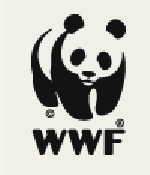Major Responsibilities:
The Ecotourism Officer will be responsible for implementation of WWF Nepal’s ‘Business Partnerships Platform’ in Madi and closing of the ‘Restore Ecotourism with Growth in Langtang National Park and Buffer zone Project’. S/he will assist in fundraising through the development of ecotourism programs, projects and networking.
Under the supervision of the Deputy Director-Field Programs, s/he will conduct regular project monitoring, prepare technical reports, and liaise with and update donors as required. S/he will coordinate and communicate with implementing partners, government agencies and other agencies working in the tourism sector including National Parks and District Disaster Relief Committees. S/he will support the program development team to develop new concepts and tourism products for fundraising to promote ecotourism in Nepal.
Qualifications:
A Master's degree in Tourism Management or a related field with at least five years’ of experience in destination planning and management is required. It is essential that the individual possesses excellent communications, technical writing and marketing skills.
Interested applicants are requested to download the application form and send the same with an application letter to the email address hr@wwfnepal.org.
Please mention the position you are applying for as the subject. Emails without an application letter and completed application form will not be entertained. Only shortlisted candidates will be informed. Detailed TOR for the mentioned position can be downloaded.
This Job is expired. The Company is no longer accepting applications for this position.
WWF is the world’s leading independent conservation organization originated from Switzerland in 1961 and currently running in more than 100 countries across 6 continents. The program started from conservation of wildlife to broader concept of building future where humans can live in harmony with nature. WWF has created 1,480 ecoregions that categorize the world into its natural ecosystems. Nepal with Bhutan, northeast India, southeast Tibet and northern Myanmar, falls under the Eastern Himalaya region housing the threatened species Snow Leopards, Bengal Tigers and One-horned Rhinos.
It was in 1967, WWF initiated WWF Nepal with a rhino conservation program in Chitwan. To keep up with the evolving face of conservation and environmental movement, WWF Nepal’s focus progressed from its localized efforts in conservation of single species in 1960s, integrated conservation and development approach in 1990s, to a new horizon of landscape level conservation encompassing national, regional and global scales of complexity in early 2000s.
